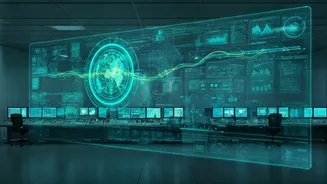Energy Trade's Evolution
The energy trade has been subject to considerable change in recent times. The dynamics in this area are always evolving, which is a key trait of the sector.
The energy landscape, including international agreements and global supply chains, has gone through a period of significant evolution, and this trend is not expected to stop. Understanding the political and economic factors influencing energy trade is more vital than ever. The increasing complexity of the energy market demands a workforce equipped with advanced analytical abilities and a deep understanding of geopolitical strategies. Consequently, professionals have to continuously update their knowledge and gain expertise, remaining informed about global events and trade practices to be effective in their respective roles.
New Skill Sets Needed
The shift in energy trade also demands fresh skill sets. A thorough understanding of policy and international relations, particularly pertaining to energy, is crucial. Professionals will benefit from a stronger grasp of economics and financial modeling to analyze market trends and conduct effective risk management. Adaptability is another key component in this industry. Individuals involved in energy trade should be capable of quickly adjusting to policy changes, technological advancements, and shifts in supply and demand. Expertise in data analysis and digital tools is essential because it facilitates better decision-making. Developing a comprehensive understanding of different energy sources, including renewables, is also critical. These new skills must be adopted to stay competitive in the market.
Navigating the Future
The future of energy trade depends on a workforce that possesses the right skills and a strategic vision. It involves actively monitoring global trends and engaging in continuous learning to stay competitive. Professionals should participate in training and courses that specialize in current industry challenges. Creating a robust international network is important for successful energy trade. These networks will facilitate information exchange and the identification of new opportunities. Building strong relationships with partners is also a vital aspect. Developing collaborations and partnerships across different regions can ensure an efficient supply chain and also manage potential political risks. A proactive strategy that emphasizes flexibility, adaptability, and forward-thinking is key to flourishing in the changing landscape.















